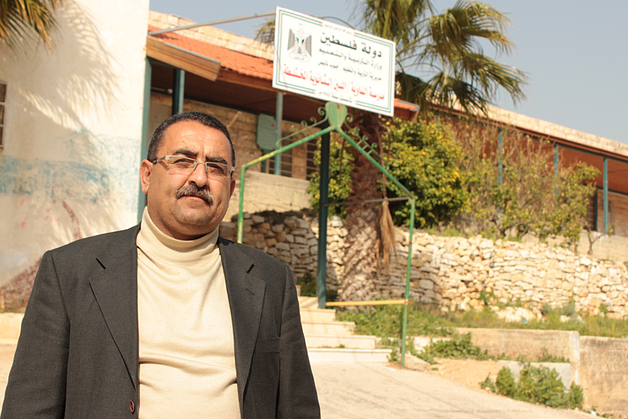The Palestinian authority’s financial Crisis undermines services and livelihoods in the West Bank
Public employees receive only partial salaries for the third consecutive month
On 24 February, the Israeli government announced that it would withhold the transfer of tax revenues it collects on behalf of the Palestinian Authority (PA) for a third successive month in retaliation for Palestinian accession to the International Criminal Court. This brings the total amount withheld to over $400 million. The Palestinian Minister of Finance has indicated that tax revenues represent some 70 per cent of the PA’s budget.
As an interim measure, the PA has borrowed funds from private banks to pay a portion of the salaries of its civil servants for each of the last three months. Those earning up to 2,000 shekels receive their full salaries, while those earning more receive only 60 per cent, but no less than 2,000 shekels. The PA has also drastically reduced other expenditures, particularly on services.
This is having a negative impact on the Palestinian economy, which already contracted in 2014 for the first time since 2006, according to the International Monetary Fund.[1] This puts pressure on the PA at the very time when reduction expenditure has a negative impact on the delivery of its core functions, including the maintenance of law and order.
The Israeli Electric Corporation (IEC), which is the sole electricity supplier to the West Bank, has been cutting power for a few hours in some urban centres due to the PA’s debts, claimed by the IEC to be some $500 million. According to media reports, on 26 February the IEC reached an agreement with the Israeli Prime Minister’s office to deduct some $75 million from the withheld PA tax revenues to pay for the past three months of electricity in the West Bank.
The crisis is further compounded by a ruling by a US federal court on 23 February ordering the PA and the Palestine Liberation Organization (PLO) to pay up to $650 million in compensation to American victims and their families for attacks by Palestinian militants between 2002 and 2004.[2]
In his opening speech to PLO Central Council on 4 March, President Abbas referred to Israel’s withholding of Palestinian tax revenues as “gangsterism” and claimed that Israel owes Palestinians some $450 million in tax, health insurance and pensions contributions paid by Palestinians working in Israel.
In his briefing to the Security Council on 18 February 2014, the UN Under SecretaryGeneral for Political Affairs stated: “Israel’s action is a violation of its obligations under the Paris Protocol of the Oslo Accords and we, again, call for an immediate reversal of this decision.”
“My sales dropped by 50 per cent last month. Look at the streets, they’re empty. Most people depend mainly on salaries. You’ll find government employees who cannot afford the cost of transportation from their villages to Ramallah. People can only afford the basics: bread, food, water and electricity. The number of people buying on credit is increasing; if this continues, I cannot continue selling goods... Without the PA salaries, there is no economy in the West Bank.”
Abu Ehab (54 years old), owner of a mini-market in Ramallah city centre
 “I have ten children and have been working for the Ministry of Education for 26 years with a salary of about NIS 4,000.The salary crisis is humiliating all PA employees. It affects the teachers’ performance and their ability to treat students properly. Some teachers come to school by public transportation on credit and sometimes are absent without notice or end classes before the assigned time. Students notice the tough situation and are affected too. I had to find an additional job to cover the needs of my family, but I feel embarrassed to be seen by my students and teachers working outside school.”
“I have ten children and have been working for the Ministry of Education for 26 years with a salary of about NIS 4,000.The salary crisis is humiliating all PA employees. It affects the teachers’ performance and their ability to treat students properly. Some teachers come to school by public transportation on credit and sometimes are absent without notice or end classes before the assigned time. Students notice the tough situation and are affected too. I had to find an additional job to cover the needs of my family, but I feel embarrassed to be seen by my students and teachers working outside school.”
Adnan Hussein, Principal at a village school near Nablus









